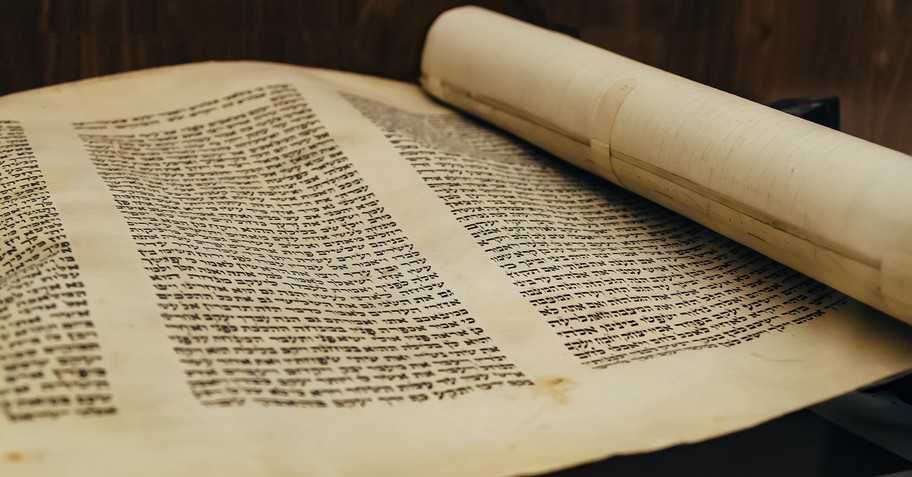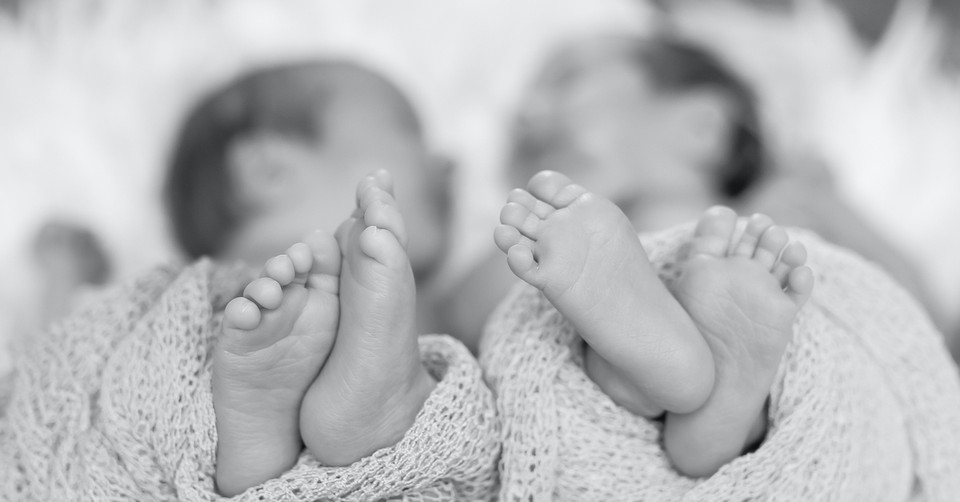In Paul’s letter to the Romans, he writes, Just as it is written, “Jacob I loved, but Esau I hated.” (Romans 9:13 NIV)
What about the Scriptures that tell us God loves everyone? Did He go back on His word by hating one person and favoring another? Is the Lord contradicting Himself?
What does this mean that God loved Jacob but hated Esau?
Photo Credit: ©GettyImages/EKSTAZA
The Prophecy Given to Rebekah
After the Lord visited Abraham and Sarah with the promise of a son, Isaac was born in their old age. He was indeed the son of the promise.
Isaac took Rebekah as his wife and after twenty years, they still had no children. Isaac prayed and the Lord answered. Rebekah became pregnant with twins. When the babies within her struggled, she inquired of the Lord what the conflict meant.
Two nations are in your womb, and two peoples from within you will be separated; one people will be stronger than the other, and the older will serve the younger. (Genesis 25:23)
Does this mean Jehovah chose to hate one man and love the other one before they were even born? No, God didn’t say He hated Esau, the man. The Scripture Paul quoted from was Malachi 1:2-3 and was given years after Esau was born.
The Lord merely told Rebekah the younger would be the fulfillment of the promise that came to Abraham.
Scriptures written thousands of years after Jacob and Esau were born speak of the nations that would form from their descendants. Jacob became Israel, and Esau was the father of the Edomites.
The Position of Election
Yet, before the twins were born or had done anything good or bad—in order that God’s purpose in election might stand: not by works but by him who calls—she was told, “the older will serve the younger” (Romans 9:11-12)
Jacob wasn’t chosen because of anything he did. God’s position of election simply chose one brother to be the one to continue the seed that would produce a nation through whom the Father could send the redeemer to earth.
Nothing the boys did caused this purpose from the Almighty. The twins were given different destinies to fulfill, yet Esau rejected his.

The Result of Esau’s Derision Against His Birthright
“I have loved you,” says the Lord. “But you ask, ‘How have you loved us?’ “Was not Esau Jacob’s brother?” declares the Lord. “Yet I have loved Jacob, but Esau I have hated, and I have turned his hill country into a wasteland and left his inheritance to the desert jackals.” Edom may say, “Though we have been crushed, we will rebuild the ruins. But this is what the Lord Almighty says: “They may build, but I will demolish. They will be called the Wicked Land, a people always under the wrath of the Lord. You will see it with your own eyes and say, ‘Great is the Lord—even beyond the borders of Israel!’ (Malachi 1:2-5)
The birthright was honor from God. For Esau to despise his rights as the firstborn, he was despising the Holy One. The land of Seir, which Esau ruled over, was a desert wasteland, as the Scripture in Malachi proclaims.
Esau had the choice when he sold his inheritance which caused the two men to be at odds. After they went their separate ways, each had a different destiny. God still made Esau into a nation (Genesis 36), but the rebellious man’s attitude confined him to rule over a wicked land.
The endowment Esau rejected and the blessing that came from Isaac were two different things. The birthright Esau sold for a bowl of stew was for the double portion of material possessions the oldest son would receive. His actions reflect how this inheritance was not valued by him.
The favor Jacob received from Isaac in place of Esau was the spiritual inheritance of the covenant between the Lord and Abraham—the building of the nation of Israel. This is the blessing the prophecy given to Rebekah spoke of.
When Jacob left Laban with his wives and children, he met Esau on the way. He wanted to appease the wrath of his brother because he was still afraid of his retribution. We can see the words “the older would serve the younger” had not been fulfilled yet because Jacob and his wives and children bowed before Esau.
Jacob saw Esau’s prosperity, but he wanted to bless him further and offered an abundance of gifts. This was one way of returning some of the material rights of the firstborn back to the older brother.
Jacob repented of his deception, and it appears Esau forgave him because at this time he was no longer angry.
Photo Credit: ©GettyImages/PippiLongstocking
The Reason for the Rejection
Since Edom refused to let them go through their territory, Israel turned away from them. (Numbers 20:21)
While wandering in the wilderness, the Hebrews needed to traverse through Edom. They asked permission to pass through with the promise they would stay on the main road and if any of their livestock needed water, they would pay for it.
Edom not only refused but they came against them with a large army (Numbers 20:20). They also sided with Nebuchadnezzar when he invaded Jerusalem.
Because of these transgressions, Obadiah prophesied against the descendants of Esau.
Because of the violence against your brother Jacob, you will be covered with shame; you will be destroyed forever. On the day you stood aloof while strangers carried off his wealth and foreigners entered his gates and cast lots for Jerusalem, you were like one of them. You should not gloat over your brother in the day of his misfortune, nor rejoice over the people of Judah in the day of their destruction, nor boast so much in the day of their trouble. You should not march through the gates of my people in the day of their disaster, nor gloat over them in their calamity in the day of their disaster, nor seize their wealth in the day of their disaster. You should not wait at the crossroads to cut down their fugitives, nor hand over their survivors in the day of their trouble. (Obadiah 1:10-14)
The nation of Edom was rejected because of the treatment of their brother, Israel.
Over time, Israel also rejected God and they suffered the consequences of it. In Paul’s letter to the Romans, he outlines how the Gentiles were invited into the kingdom of heaven through faith in Christ and the Jews were rejected because of their rejection of Christ as their Messiah. And the same invitation is still given to the Jews.

The Fulfillment of the Prophecy
Even though Jacob and Esau did finally make amends (Genesis 33:10-11), the seed of dissension was already sown through the children of Esau. The entire book of Obadiah is judgment against Edom.
“Jacob will be a fire and Joseph a flame; Esau will be stubble, and they will set him on fire and destroy him. There will be no survivors from Esau.” The Lord has spoken. (Obadiah 1:18)
After the Jews returned from captivity, they made slaves of the Idumeans (descendants of Esau) and forced them into Jewish rites thus fulfilling that the elder would serve the younger. As an independent nation, Edomites were done.
Israel now thrives as the desert rose and part of Edom’s land was present-day Petra, now an empty, sand covered tourist attraction.
Herod the Great was born from a Nabatean mother and was an Idumean convert to Judaism due to these imposed religious rites.
Herod may have been king over Israel, but his acts of favor toward the nation through his building projects were for his own gain and favor. He wasn’t about to bow the knee to another king. He wanted to kill Jesus when He was born to prevent Christ’s (a descendant of Jacob’s) ascension to the throne. The antagonism still existed.
Herod was appointed by the Romans; he didn’t inherit the rights to royalty through blood succession because he wasn’t a true Israelite. When Herod Agrippa II died, the Herodian rulership over Judea ended.
The Consequences of Deception
Jacob fled for his life after experiencing his father’s grief and his brother’s anger due to the deception. On his journey to Padan Aram, the Spirit visited him in the night and re-established His covenant with Jacob’s descendants (Genesis 28:10-17).
But the consequences of Jacob’s past actions were ahead of him. Even though the blessing Jacob obtained would continue because God would honor His covenant, Jacob paid for his trickery by being tricked himself. We do reap what we sow (Galatians 6:7-8).
He fled from his brother in fear of his life and stayed away for twenty years. And later Jacob was deceived by Laban with being given the wrong sister to marry, and his wages were changed ten times (Genesis 31:41).
God could have fulfilled the words He spoke to Rebekah His own way, but Rebekah intervened and the whole plan got skewed. This caused the strife and division in the family. She should have learned from Sarah how trying to force God’s hand results in disaster.
Rebekah paid for her part in the lie because she is not mentioned anymore, not even her death and burial. This may indicate she never saw her favorite son again.
Photo Credit: ©GettyImages/VladimirZapletin
The Results of Repentance and Faith
God said He would bless the world through Abraham’s descendants. This means the Father already had in mind to bless all people, not just one nation (Galatians 3:8).
When Israel rejected their Lord, Gentiles were grafted into the gospel.
I will have mercy on whom I have mercy, and I will have compassion on whom I have compassion. It does not, therefore, depend upon human desire or effort, but on God’s mercy. (Romans 9:15-16)
The Father displays His love to mankind because of His goodness, not because of any special trait of people. Jews were not loved because they were descendants of Abraham but because the Creator is good, and He wanted the world to know Him. He had to have a nation to bring His Son through. They became arrogant about their choosing and wanted to exclude the Gentiles. God told them He could have mercy on whomever he chose.
God blessed Jacob due to His covenant in spite of Jacob’s sins. He blesses us despite our failures and sins if we put our trust in Him. His covenant with us is that if we believe in His Son, we are saved. We are forgiven and receive an inheritance based on faith not our works.
If you belong to Christ, then you are Abraham’s seed, and heirs according to the promise. (Galatians 3:29)
We find out the Lord does love everyone but has a different purpose for us to fulfill. When God said he loved Jacob and hated Esau, He was referring to the nations of Israel and Edom, not individual persons. The evil from the land of Edom would be judged. All through the Bible, any person from heathen nations who turned to the living God was accepted, as we see with Rahab and Ruth.
If we submit to the Holy Spirit’s leading instead of trying to force His hand as Rebekah and Jacob did, we can live without the tragedy and pain our actions can inflict.
His wisdom is always greater than ours.
Originally published September 16, 2022.








